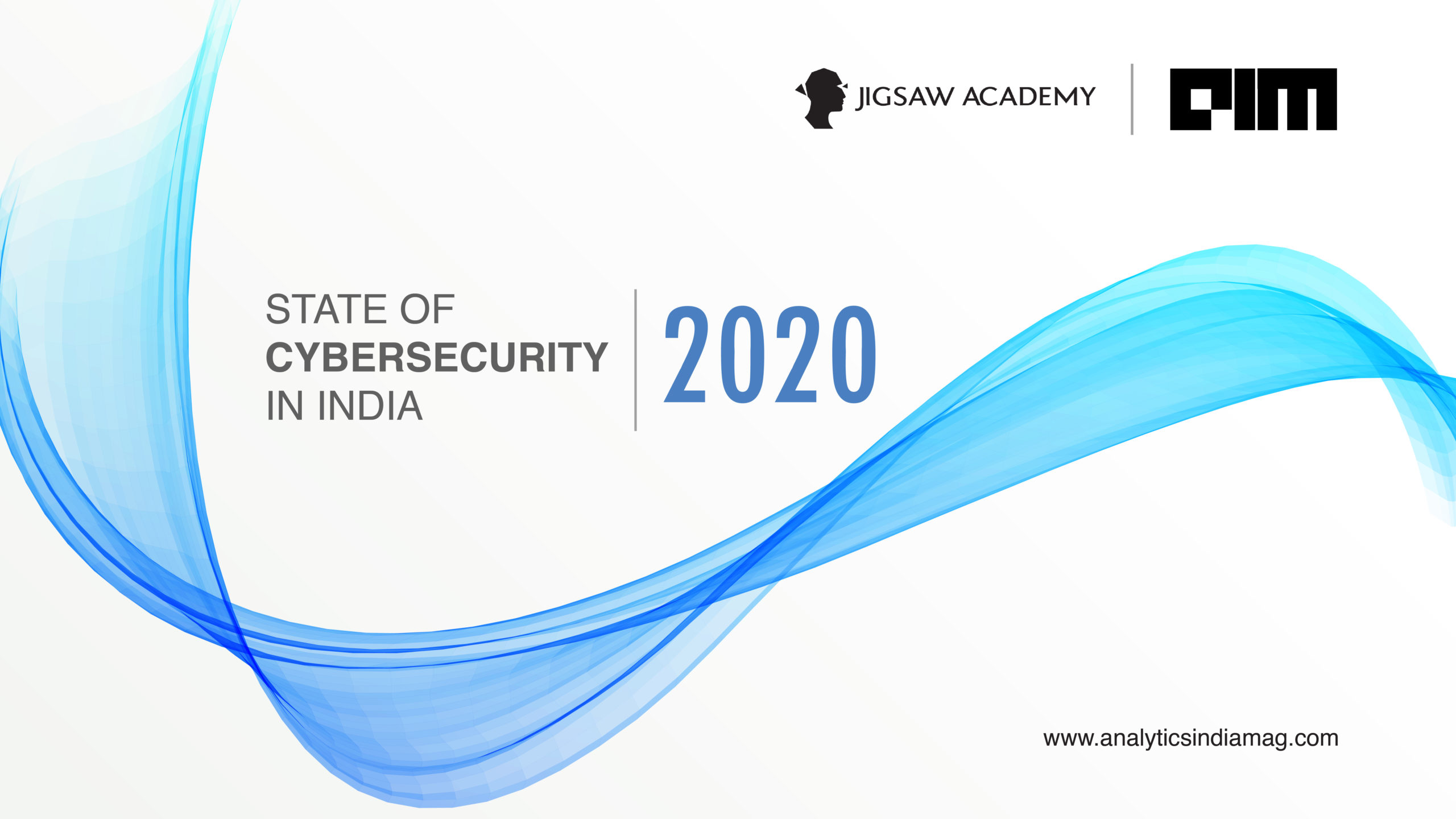AIMResearch & Jigsaw Academy presents the impactful insights on the state of the Indian Cybersecurity market and capabilities.
In January 2020, India touched a milestone in terms of Internet users by becoming the 2nd largest internet user base with 560 million (mn) internet users. The number of internet users in India will continue to increase – by 2021, the country is expected to have over 600 mn internet users, the user base more than doubling from the approximate 300 mn in 2016.
Most of the internet traffic in India is carried out over mobile data – over 450 million users access the internet from their mobiles to not just communicate and browse media, but also to shop, transfer money, trade stocks and commodities, exchange crucial documents, pay utility bills – these mobile transactions have been facilitated by cheap data plans, spread of 4G networks, and affordable smartphones.
In this environment of constant digital and data growth, it is imperative that organizations are equipped with the necessary resources, including personnel and training, to provide effective cybersecurity and data privacy.
This comprehensive report studies the trends in cybersecurity. It provides wide-ranging insights on the state of cybersecurity jobs, distribution of companies by local geography and salaries, and the size of typical companies with cybersecurity functions.
Overview
The Indian cybersecurity market is poised to experience significant growth across various segments, including cybersecurity services, organization capabilities, startups, jobs and salaries.
The following insights put in perspective the crucial need for embedding cybersecurity services and capabilities in organization processes and policies:
• The evolving nature of cybersecurity attacks such as web application breaches, ransomware, reconnaissance, cyber espionage and DDoS attack establishes cyber-risk as a new challenge for enterprises and government authorities
• The digital economy contributes approximately 15% to India’s GDP and it is expected to grow to 20% by 2024.
• India’s digital requirements have expanded the data infrastructure to cover more than 120 recognized data centres and cloud networks – which Indian & MNC enterprises and Central & State Governments leverage and access to store data of not just citizens, but also global and domestic transactions
• The average mobile and data user in India consumes 15-20 gigabits of data per year
• eCommerce as an industry is expected to grow to $25 Billion by 2024.
• Digital payments in India are growing at 13% CAGR, while the mobile wallets domain will soon experience growth of 50% CAGR
With greater inclusion of services such as artificial intelligence (AI), Machine Learning (ML), data analytics, cloud computing and Internet of Things (IoT), across all industry and functional domains, the scope of cybersecurity has become a challenging and necessary function across all organizations and enterprises.
Key Highlights
• The Indian cybersecurity industry is valued at $6.7 Bn. As mentioned above, this covers the revenues from all cybersecurity operations originating from India regardless of the following: stakeholder or client type, type of firm providing the cybersecurity service, and location of client/stakeholder.
• Close to 11000 positions related to cybersecurity are currently available to be filled in India. Bengaluru, just as it does for other IT and Information services, tops the job location, while Banking & Financial Services is the preferred sector of jobs (this does not include jobs advertised by IT and Boutique Security firms as the data for these two types of companies skews the analysis).
• There are close to 96000 cybersecurity personnel working across enterprises in India
• The concentration of personnel working in cybersecurity is in large enterprises with personnel greater than 10000.
DOWNLOAD THE COMPLETE REPORT BELOW
Conclusion
State Of Cybersecurity in India 2020 found a renewed interest in cybersecurity given the growth in the last couple of years of the digital economy, platforms and app-based activity, and mobile and digital payments, and the fact that India has achieved a digital milestone of 450 mn mobile internet users. While the domain is valued at $6.7 Bn, it has room for growth.
This has resulted in organizations, global and domestic, across industries and sectors looking at developing their cybersecurity capabilities, either organically or inorganically, in-sourced or outsourced. This need for cybersecurity services has seen the emergence of start-ups, with employees less than 500 personnel, providing specialized cybersecurity and cyber-operations services in this field. Moreover, the government support and foray in the domain is also evident with a couple of enterprises providing niche services.
But there is significant room for growth and improvement. India accounts for just 3% of the global cybersecurity jobs. While this low figure is due to the sensitive nature of securing region-specific digital assets, it is also a result of the lack of specializations provided in this field. This is supported by the proportion of cybersecurity personnel with postgraduate or higher degrees – only 19% with postgraduate and only 1% with a doctorate or equivalent degrees.
Moreover, the role of the Government needs to be enhanced in this field as the primary responsibility of securing any digital asset located in a data centre or cloud network in India, starts with tangible or intangible support provided by Government agencies. Here again, incentives need to be rolled for quality education services and support systems, both of which would lead to the incubation and growth of start-ups in this domain.
Nonetheless, promising cybersecurity start-ups are emerging after support from few research institutes (Cyber Security Laboratory at IIT Bombay) and entrepreneurs (John Chambers – former CEO of Cisco Systems and Indian-born entrepreneur – Kanwal Rekhi – MD Inventus Capital Partners).
The key trends predicted in 2020 and beyond would revolve around the growth of start-ups in cybersecurity, greater support from Government agencies, including the Data Security Council of India (DSCI), and many niches and boutique security, network, and chip firms setting critical cyber operations centres across the country.












































































